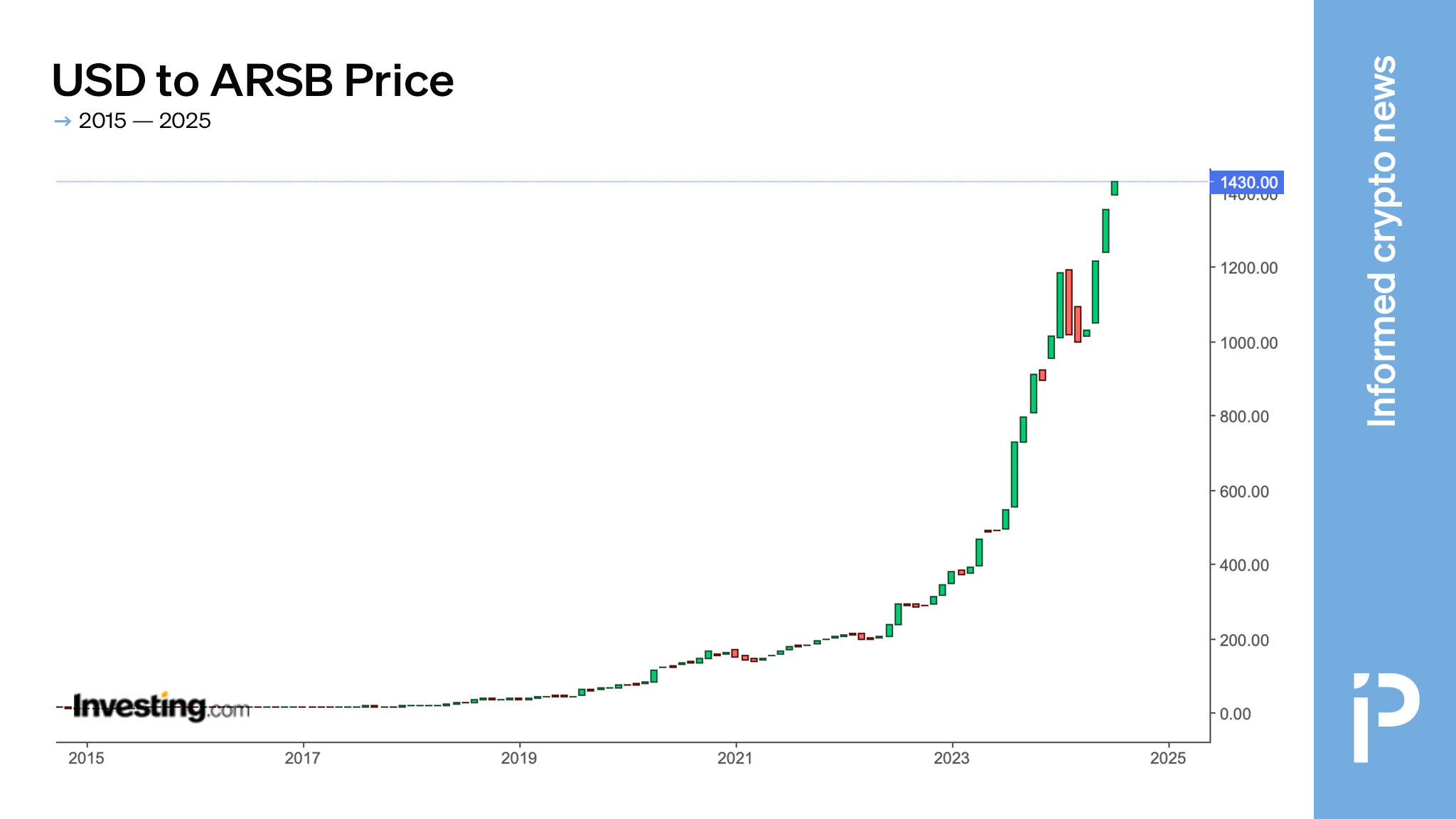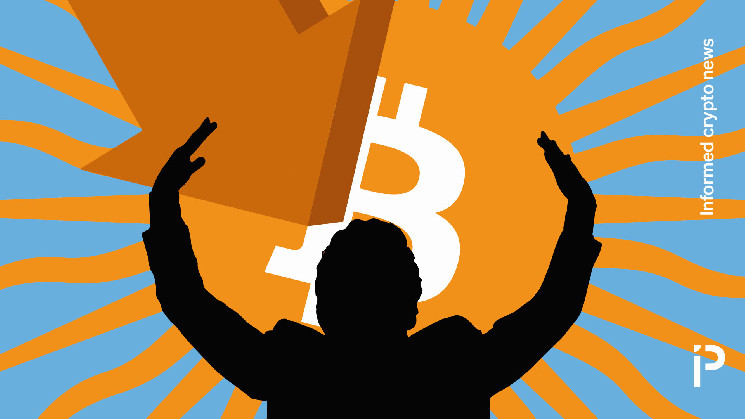Last November, many members of the crypto community applauded the election of Javier Milei in Argentina. He spoke positively about Bitcoin and it was thought by many that his far-right populist tactics might help tame Argentina’s famously high inflation rate.
Milei described himself as an anarcho-capitalist. He made various campaign promises like ending the central bank, firing most government workers, and his most important pledge — reducing inflation.
For context, inflation is the most obvious symptom of Argentina’s financial troubles. The country owes the International Monetary Fund $43 billion and is heavily indebted elsewhere, owing a combined $400 billion to creditors.

Double- and triple-digit inflation rates in the Argentine peso have crippled the country for years. A decade ago, 20 pesos bought one US dollar. Today, it costs 1,440 pesos to buy a dollar.
Within 24 hours of becoming president, Milei reneged on his promise to end inflation. Devaluing the peso’s official exchange rate from 366.5 to 800 per US dollar on his first day in office, he claimed that he was simply bringing the official rate into parity with the real exchange rate in common ‘cuevas’ (illegal currency exchange centers).
However, he has continued to renege on his pledge. He has been president for half a year, and this month, the peso again hit an all-time low per US dollar. Worse, his official 946 exchange rate is completely disconnected from reality and nowhere close to the real, 1,440 Blue Dollar rate available at the cuevas.
Neither Milei nor bitcoin have stopped Argentine inflation
High inflation rates make economies unproductive and chaotic.
- Cash holders want to spend as quickly as possible — before prices increase — and cannot afford time to shop around.
- Business owners have difficulty pricing long-term contracts.
- Normally unremarkable delays in work or invoicing quickly become catastrophic due to currency devaluations.
- Savers seek high-risk and offshore investments in attempts to beat the local inflation rate.
In summary, escaping inflation itself becomes a priority, which is not an economically productive activity. Indeed, this focus on inflation avoidance distracts all workers from producing valuable services and goods for society.
Read more: Javier Milei is big on decentralization but does he care about bitcoin?
Moreover, a currency inflates when creditors fear that the sovereign will print or debase the currency to make its debt repayments. For this reason, inflation itself is not the problem; rather, inflation is a symptom of sovereign indebtedness.
In recent weeks, Milei has been making belated attempts to slow the peso’s inflation rate. He swears the central bank will slow its rate of printing and has promised to use the country’s modest holdings of foreign currencies to bid for pesos.
Skeptics say his strategies recklessly address a symptom of the problem and not the problem itself, namely debt.
 protos.com
protos.com
